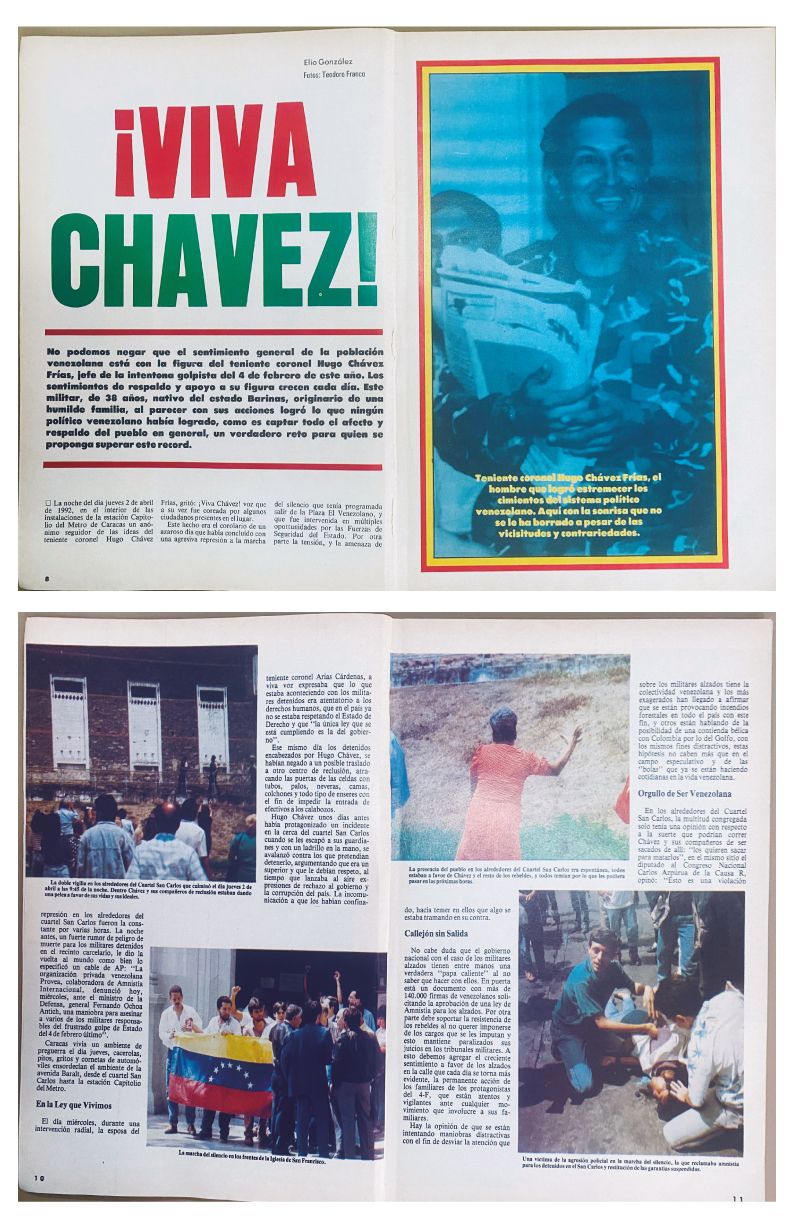CHÁVEZ: SYMBOL OF POPULAR PROTEST (BOHEMIA, April 20-26, 1992)
Published at: 07/02/2024 09:00 PM
- Inside the Caracas Metro stations, it was common to hear the cry that often resounded throughout the Capital: LONG LIVE CHÁVEZ!
- On April 2 of that year, Caracas was shaken by the presence of thousands of supporters of the Commander who came out to wave the national flag and sing the same slogan: LONG LIVE CHÁVEZ!
- They went out to express their dissatisfaction with the government's refusal to rectify its neoliberal measures and the obtuse intention not to reverse Carlos Andrés Pérez's economic package.
- The very lives of the insurgents were at risk, and it was known that there were no guarantees to protect their lives. They were subject to unsanitary conditions of prison overcrowding. They were denied access to any type of written, radio or television information. Likewise, they were prevented from frequent visits from their families, lawyers, and the assurance of adequate nutrition.
- The San Carlos Barracks were surrounded by military equipment before a march that was moving towards the center of the city with the purpose of rescuing Chávez and his companions.
- The old barracks became the Cathedral of Venezuelan Dignity and Hugo Chávez a headache for the ailing government of Carlos Andrés Pérez.
- The perimeter area of the barracks was surrounded by family and friends of the military defendants, who were standing around all day until 10:00pm, watching over the physical integrity of the detainees.
- As far as the center of Caracas, inside the church of San Francisco, the pellets and bombs of the PM and the GN arrived. Hundreds of demonstrators had taken refuge there to avoid the impact of lead and tear gas.
- The National Guard violated the sacred enclosure and tear gas bombs were thrown inside the church.
- Finally, that night, from the Barracks of Dignity, Commander Chávez offered statements to allay the high-risk social tension that gripped Caracas, and to put an end to the campaign of rumors about the unity of the Bolivarian Movement in the following terms: “The message is one of faith and struggle, for you Venezuelan people, we will continue to fight in new situations.”
- Despite the vicissitudes and setbacks that the insurgent soldiers suffered, they always had the intelligence and morals necessary to send messages of encouragement and thanks to a people that took to the streets to defend it.
- Thus, clandestinely, they sent letters to the media and to sympathizers, accompanied by photos where they always appeared smiling, united and fraternally embraced.

Mazo News Team